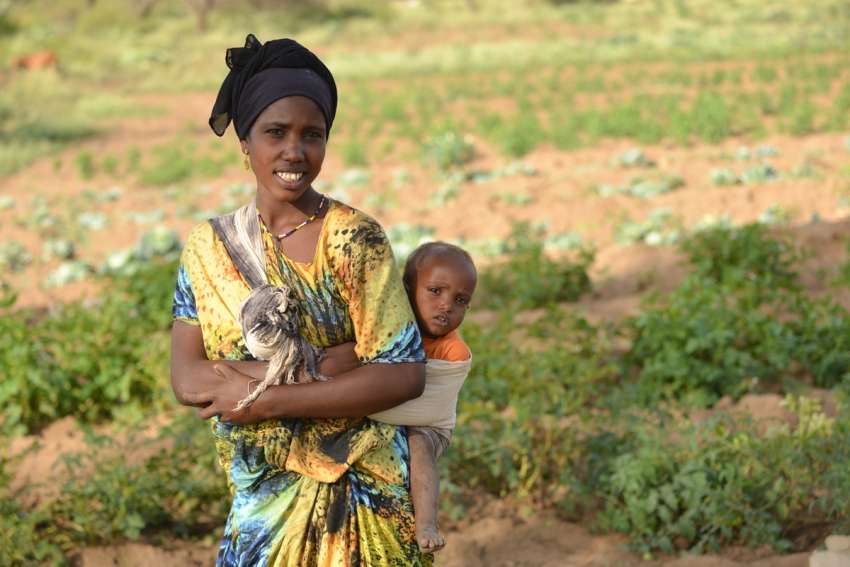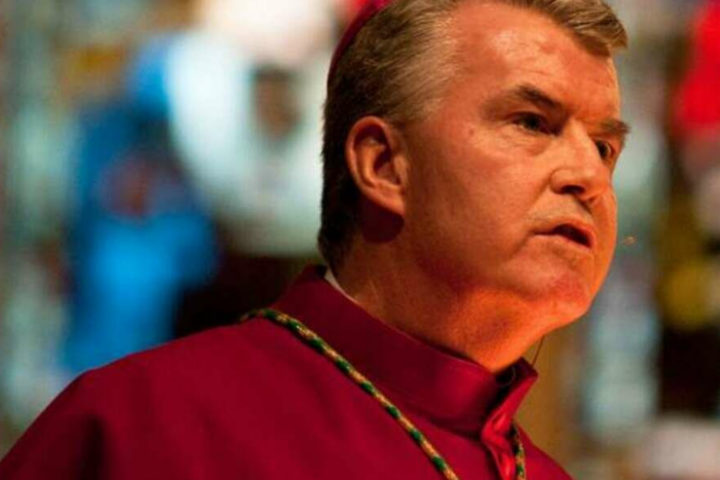From the heady days of Prime Minister Justin Trudeau’s appointment of a gender-equitable cabinet, “because it’s 2015,” through to its intimate ties with Canada 2020, a self-described “upstart think-tank for Canada’s progressive community,” the Trudeau government prides itself for its progressive bona fides.
To listen to the media scrum comments of Liberal ministers is to understand that the Grits imagine themselves to be the last bulwark against the populist, far-right, knuckle-dragging, misinformed hordes roaming the Canadian tundra.
Over the past nine years, these progressive sensibilities have been applied not just domestically, but to the foreign assistance framework administered and funded through Global Affairs Canada. In 2017, then Foreign Minister Chrystia Freeland and Minister of International Development Marie-Claude Bibeau produced a 77-page policy document, Canada’s Feminist International Assistance Policy (CFIAP). The 2017 policy directive has become the decoding ring for Liberal foreign aid strategy.
Bibeau described it as a “new vision for international assistance” and proclaimed that Canada should play “a leading international role.” In her preface to the document, Freeland wrote that “Canadians are safer and more prosperous when more of the world shares our values.”
Freeland makes an astonishing three-step slide from the innocuous statement that “women’s rights are human rights,” through to those rights including “sexual and reproductive rights — and the right to access safe and legal abortions,” and then to the remarkable pronouncement that “These rights are at the core of our foreign policy.”
The money was quick to follow the new policy directive.
In 2019, Trudeau announced that Canada would spend $14 billion to “support women and girls’ health around the world” with half of the funds earmarked for Sexual and Reproductive Health and Rights (SRHR). The funding envelope was to extend for 10 years, ending only in 2030.
The recent 2024 budget included $4.2 billion over six years for the provision of contraception and abortion globally. The funding was included in the section of the budget entitled “Upholding Canadian Values Around the World.”
In many, if not most, cases, Global Affairs is not doing the development work but has instead outsourced the work to non-governmental organizations (NGO) whose missions align with that of the current government.
But to others, and in particular many in the nations that are on the receiving end of Canada’s largesse from Global Affairs, people who understand the Western world and its colonial past, such offers are not much different from previous efforts. In reality, they see this as the new colonialism.
Obianuju Ekeochais among a small number of voices from the countries where Canadian assistance is currently being funneled that accuse Canada of a modern-day colonialism, dangling cash in exchange for the adoption of values that are not in line with the mores or best interests of the target nations.
Ekeocha, a Nigerian scientist and founder of Culture of Life Africa, has written and spoken extensively on the misalignment between the actual needs and desires of African women and the funding priorities of Western nations. In her 2018 book Target Africa, Ekeocha illustrates the disconnect with a striking visual.
“In 2016 I traveled extensively in Sierra Leone… and I couldn’t help but notice the imposing ‘I am Mr. Condom’ billboards set up in every region and province,” Ekeocha writes.
“These billboards, which probably cost significant sums, were sometimes located in the poorest neighbourhoods with impassable roads and dilapidated houses. In their struggle to maneuver through the flooded dirt roads, the people seemed not to notice the billboards that were no doubt targeting them.”
It is Ekeocha’s conclusion that “many Western leaders have revealed themselves to be modern colonial masters, threatening to withdraw aid from countries such as Nigeria and Uganda unless they accept their global sexual agenda.”
A quick search of the government grant site gets 48 hits on the keyword “Planned Parenthood.” Many of these are smaller grants to local Planned Parenthood Canada offices through the Canada Summer Jobs program, but the search shows that close to $78 million has been provided to International Planned Parenthood or Action Canada through Global Affairs programming.
Much of the program funding is designated for sex-ed which is couched in grant-writing language as a matter of access to reproductive rights.
In 2020, Global Affairs funded a four-year, $11 million project with Action Canada and International Planned Parenthood Federation (IPPF) entitled “Rights from the Start” that targeted four South American countries: Ecuador, Bolivia, Guyana and Peru. One of the stated expected “gender equality outcomes” of the project was the “strengthened capacity of partner organizations to develop and implement advocacy plans for the fulfilment of human rights comprehensive sexuality education.”
It is interesting to note that abortion is illegal in Ecuador, Bolivia and Peru and illegal after eight weeks gestation in Guyana. It is not a big leap to speculate that the choice of those four countries is not accidental and that Global Affairs is essentially funding an activist group to lobby a foreign government to affect legal change there.
Canada’s Catholic bishops have long stood against ideological policies when it comes to such aid. The bishops, through their overseas development agency Development and Peace, have a long history of helping groups on the ground to provide humanitarian aid for the basics of life. At the time Freeland and Bibeau produced their Feminist Funding Manifesto, the Canadian Conference of Catholic Bishops (CCCB) wrote Freeland and critiqued the new policy direction.
“In these uncertain times, when Canada’s voice and leadership do matter on everything from climate change to global peace, political ideology cannot be allowed to dictate foreign policy and to override common sense and our humanitarian responsibilities to those in need,” wrote Hamilton Bishop Douglas Crosby, then CCCB General Secretary.
The notion, Crosby added, that “there is universal agreement on a single set of Canadian values itself is contrived.”
Crosby rightly points out “that for a considerable population (both within Canada and abroad) the unborn child is regarded as a human being created by God and worthy of life and love.”
But there is a secondary and equally contested question. Even if a single set of values could be agreed upon, do Canadians have a right to impose them on a foreign populace?
The current federal government might do well to remember that it is not the first to consider itself both progressive and altruistic. It’s also not the first group of Canadian politicians who collaborated with non-governmental agencies to undertake social programming in a population it considers to be its dependent inferiors.
In 1885, Samuel Woods, principal of Ottawa Ladies College, addressed an international congress of educators in New Orleans on the topic of “Education of the Indians in the Dominion of Canada.”
“These Ontario schools take high rank, because our system of public-school education is probably equal to, if not in advance of, any other country in the world, and in every progressive step made by these schools the Indians have shared,” said Woods.
Two years later, in a letter to Prime Minister John A. Macdonald, well-established Department of Indian Affairs bureaucrat Lawrence Vankoughnet wrote “that the country owes to the poor Indian to give him all that will afford him an equal chance of success in life by his white brother, by whom he has been supplanted … in his possessions, goes without saying.”
The Canadian government has now paid out over $2 billion in class-action settlements to former Indigenous residential school and day-school students in reparation for a system that was understood at the time to be the very best representation and praxis of Canadian values.
In another example of contested Canadian values, it turns out there is, in Canada’s corridors of power, an intersectionality between feminism and climate action. “Environment and climate action” is, in fact, “a pillar of” the Feminist International Assistance Policy.
“Research has shown that climate change and environmental degradation disproportionately affect women and girls, and that women and girls can be powerful agents of change if given access and control over environmental resources. Since the introduction of the (Feminist Policy), Canada has strengthened its work at the nexus of gender and climate action.”
This has become a standard verbal slide of ministers and apparatchiks.
In 2024, citing a “feminist approach” to environment and climate action, the federal government committed $5.3 billion towards “climate finance for developing countries.”
Like with SRHR, Global Affairs delegates the work of climate justice to well-funded NGOs. For example, Canadian Foodgrains Bank received $35 million for a project entitled “Nature Positive Food Systems for Climate Change Adaptation.” The project “aims to improve low carbon, climate-resilient economies in rural areas of Ethiopia, Kenya, Mozambique and Zimbabwe for enhanced well-being of communities, especially women, girls and other vulnerable groups.”
There are plenty of Africans who argue that Africa is facing much bigger problems than climate change. Jusper Machugo is a young Kenyan man who through his social media platforms advocates for “fossil fuels for Africa.”
“Most people over here don’t really know what Sustainable Development Goals (SDG) are about or what the UN is truly doing in Africa. They say that there are these 17 big problems that Africans or developing countries are facing. I’m surprised to see climate change as one of those problems,” said Machugo.
Machugo is blunt in his assessment.
“There is no Western nation that developed minus oil, minus gas,” said Machugo. “The four pillars of modern civilization are cement, fertilizer, plastics and steel.
“I know Canada is one of those nations that are supporting solar wind, especially if they’re going to get involved in developing countries and their energy sector. They say we’re going to get you loans, but if we’re going to give you a loan, you must invest in renewable energy. When they say renewable energy, they don’t mean hydro or geothermal. Power usually means solar and wind.”
But Machugo is not convinced that solar and wind is the solution for Africa.
“What’s going to make an average African rich? Solving agriculture. Today about six to seven out of 10 Africans rely on agriculture for their livelihood. How do we solve agriculture? Of course, we need fossil fuels. We need farm machinery. We need irrigation. We need nitrogenous fertilizers. That’s what the crop needs to grow or to do better.”
But, he says, “the World Bank is not going to fund fossil fuel projects in Africa. If we want a loan to develop, we cannot access funds to develop fossil fuel projects, oil and gas.
“I think it boils down to depopulation. They’re trying to keep Africa poor,” he said.
In 1974, then U.S. Secretary of State and National Security Advisor Henry Kissinger issued a now infamous, classified national security memorandum entitled “Implications of Worldwide Population Growth For U.S. Security and Overseas Interests.” Kissinger argued that unbridled population growth in politically and economically fragile nations was a security threat to the United States.
“The political consequences of current population factors in the LDCs — rapid growth, internal migration, high percentages of young people, slow improvement in living standards, urban concentrations and pressures for foreign migration — are damaging to the internal stability and international relations of countries in whose advancement the U.S. is interested, thus creating political or even national security problems for the U.S. In a broader sense, there is a major risk of severe damage to world economic, political and ecological systems and, as these systems begin to fail, to our humanitarian values.”
The solution was long-term U.S. engagement with key countries to implement population control measures.
In response to the 2017 CCCB letter critical of the CFAIP, Bibeau seemed to channel Kissinger.
“Contraception and even abortion is only a tool to end poverty… So we shouldn’t look at contraception as the objective. This is not the objective. This is only a tool to reduce poverty and inequality and to make an impact in terms of development and peace and security in the world,” said Bibeau.
Which, in a certain light, could read that the lives and bodies of African women are really just a means to an end, the end that is Canadian security and safety.
The Catholic Register




